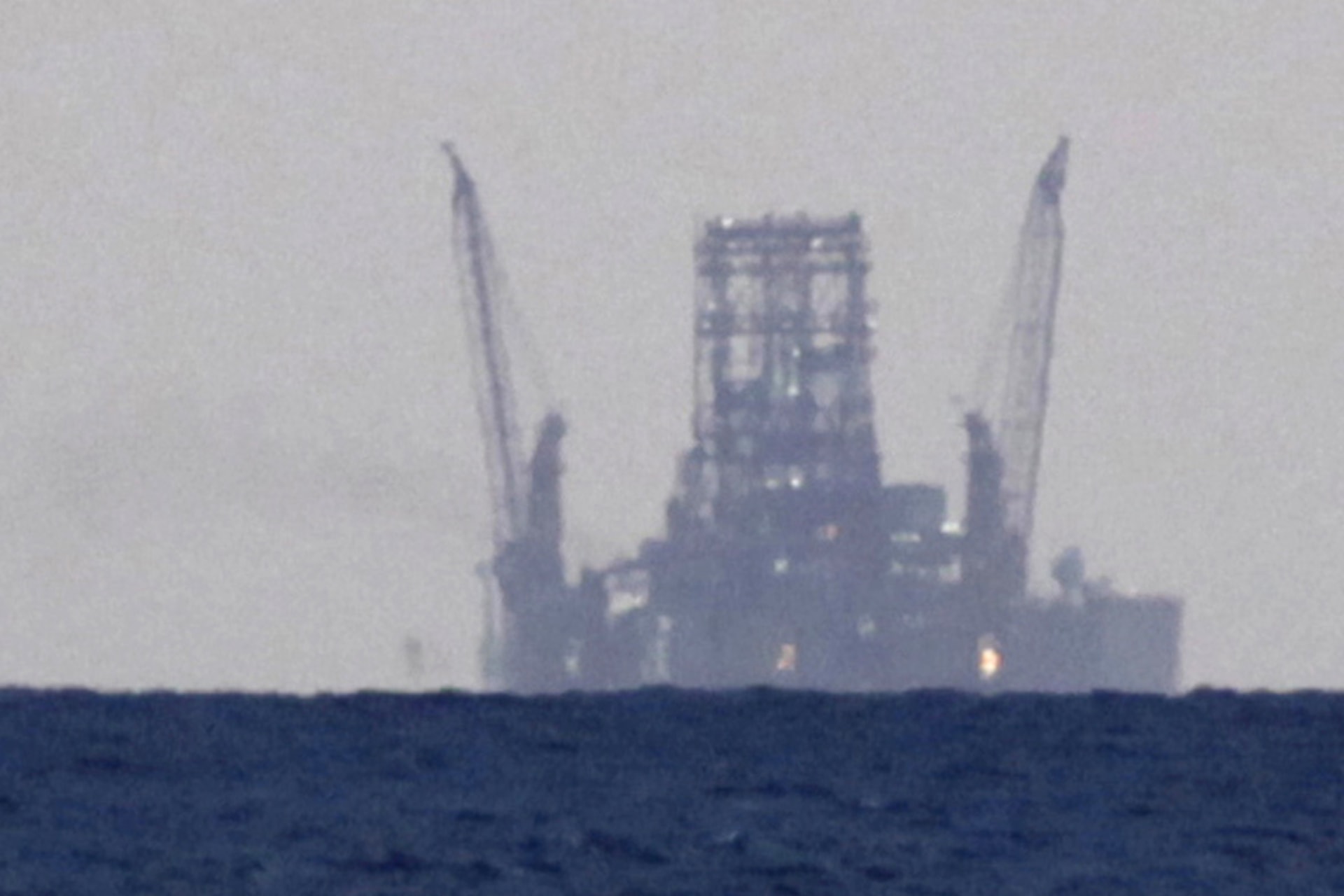Addressing the Risk of a Cuban Oil Spill

BY
- Captain Melissa Bert, USCG2011-2012 Military Fellow, U.S.Coast Guard
- Blake ClaytonAdjunct Fellow for Energy
The imminent drilling of Cuba’s first offshore oil well raises the prospect of a large-scale oil spill in Cuban waters washing onto U.S. shores. Washington should anticipate this possibility by implementing policies that would help both countries‘ governments stem and clean up an oil spill effectively. These policies should ensure that both the U.S. government and the domestic oil industry are operationally and financially ready to deal with any spill that threatens U.S. waters. These policies should be as minimally disruptive as possible to the country’s broader Cuba strategy.
The Problem
A Chinese-built semisubmersible oil rig leased by Repsol, a Spanish oil company, arrived in Cuban waters in January 2012 to drill Cuba’s first exploratory offshore oil well. Early estimates suggest that Cuban offshore oil and natural gas reserves are substantial—somewhere between five billion and twenty billion barrels of oil and upward of eight billion cubic feet of natural gas. Although the United States typically welcomes greater volumes of crude oil coming from countries that are not members of the Organization of Petroleum Exporting Countries (OPEC), a surge in Cuban oil production would complicate the United States‘ decades-old effort to economically isolate the Castro regime.
Deepwater drilling off the Cuban coast also poses a threat to the United States. The exploratory well is seventy miles off the Florida coast and lies at a depth of 5,800 feet. The failed Macondo well that triggered the calamitous Deepwater Horizon oil spill in April 2010 had broadly similar features, situated forty-eight miles from shore and approximately five thousand feet below sea level. A spill off Florida’s coast could ravage the state’s $57 billion per year tourism industry.
Washington cannot count on the technical know-how of Cuba’s unseasoned oil industry to address a spill on its own. Oil industry experts doubt that it has a strong understanding of how to prevent an offshore oil spill or stem a deep-water well blowout. Moreover, the site where the first wells will be drilled is a tough one for even seasoned response teams to operate in. Unlike the calm Gulf of Mexico, the surface currents in the area where Repsol will be drilling move at a brisk three to four knots, which would bring oil from Cuba’s offshore wells to the Florida coast within six to ten days. Skimming or burning the oil may not be feasible in such fast-moving water. The most, and possibly only, effective method to respond to a spill would be surface and subsurface dispersants. If dispersants are not applied close to the source within four days after a spill, uncontained oil cannot be dispersed, burnt, or skimmed, which would render standard response technologies like containment booms ineffective.
Repsol has been forthcoming in disclosing its spill response plans to U.S. authorities and allowing them to inspect the drilling rig, but the Russian and Chinese companies that are already negotiating with Cuba to lease acreage might not be as cooperative. Had Repsol not volunteered to have the Cuba-bound drilling rig examined by the U.S. Coast Guard and Bureau of Safety and Environmental Enforcement to certify that it met international standards, Washington would have had little legal recourse.
The complexity of U.S.-Cuba relations since the 1962 trade embargo complicates even limited efforts to put in place a spill response plan. Under U.S. law and with few exceptions, American companies cannot assist the Cuban government or provide equipment to foreign companies operating in Cuban territory.
The United States should strike an agreement with Cuba limited to spill-oriented advance coordination and communication.
Shortfalls in U.S. federal regulations governing commercial liability for oil spills pose a further problem. The Oil Pollution Act of 1990 (OPA 90) does not protect U.S. citizens and property against damages stemming from a blown-out wellhead outside of U.S. territory. In the case of Deepwater Horizon, BP was liable despite being a foreign company because it was operating within the United States. Were any of the wells that Repsol drills to go haywire, the cost of funding a response would fall to the Oil Spill Liability Trust Fund (OSLTF), which is woefully undercapitalized. OPA 90 limits the OSLTF from paying out more than $50 million in a fiscal year on oil removal costs, subject to a few exceptions, and requires congressional appropriation to pay out more than $150 million.
The Way Forward
As a first step, the United States should discuss contingency planning for a Cuban oil spill at the regular multiparty talks it holds with Mexico, the Bahamas, Cuba, and others per the Cartagena Convention. The Caribbean Island Oil Pollution Response and Cooperation Plan provides an operational framework under which the United States and Cuba can jointly develop systems for identifying and reporting an oil spill, implement a means of restricting the spread of oil, and identify resources to respond to a spill.
Washington should also instruct the U.S. Coast Guard to conduct basic spill response coordination with its counterparts in Cuba. The United States already has operational agreements in place with Mexico, Canada, and several countries in the Caribbean that call for routine exercises, emergency response coordination, and communication protocols. It should strike an agreement with Cuba that is substantively similar but narrower in scope, limited to basic spill-oriented advance coordination and communication. Before that step can be taken, U.S. lawmakers may need to amend the Cuban Democracy Act of 1992 to allow for limited, spill-related coordination and communication with the Cuban government.
Next, President Barack Obama should issue an export-only industry-wide general license for oil spill response in Cuban waters, effective immediately. Issuing that license does not require congressional authorization. The license should allow offshore oil companies to do vital spill response work in Cuban territory, such as capping a well or drilling a relief well. Oil service companies, such as Halliburton, should be included in the authorization.
Finally, Congress should alter existing oil spill compensation policy. Lawmakers should amend OPA 90 to ensure there is a responsible party for oil spills from a foreign offshore unit that pollutes or threatens to pollute U.S. waters, like there is for vessels. Senator Robert Menendez (D-NJ) and Congressman David Rivera (R-FL) have sponsored such legislation. Lawmakers should eliminate the requirement for the Coast Guard to obtain congressional approval on expenditures above $150 million for spills of national significance (as defined by the National Response Plan). And President Obama should appoint a commission to determine the appropriate limit of liability cap under OPA 90, balancing the need to compensate victims with the desire to retain strict liability for polluters.
A slow response to a Cuban oil spill could cause catastrophic damage to Florida and the Southeast.
There are two other, less essential measures U.S. lawmakers may consider that would enable the country to respond more adeptly to a spill. Installing an early-response system based on acoustic, geophysical, or other technologies in the Straits of Florida would immediately alert the U.S. Coast Guard about a well blowout or other unusual activity. The U.S. Department of Energy should find out from Repsol about the characteristics of Cuban crude oil, which would help U.S. authorities predict how the oil would spread in the case of a well blowout.
Defending U.S. Interests
An oil well blowout in Cuban waters would almost certainly require a U.S. response. Without changes in current U.S. law, however, that response would undoubtedly come far more slowly than is desirable. The Coast Guard would be barred from deploying highly experienced manpower, specially designed booms, skimming equipment and vessels, and dispersants. U.S. offshore gas and oil companies would also be barred from using well-capping stacks, remotely operated submersibles, and other vital technologies. Although a handful of U.S. spill responders hold licenses to work with Repsol, their licenses do not extend to well capping or relief drilling. The result of a slow response to a Cuban oil spill would be greater, perhaps catastrophic, economic and environmental damage to Florida and the Southeast.
Efforts to rewrite current law and policy toward Cuba, and encouraging cooperation with its government, could antagonize groups opposed to improved relations with the Castro regime. They might protest any decision allowing U.S. federal agencies to assist Cuba or letting U.S. companies operate in Cuban territory.
However, taking sensible steps to prepare for a potential accident at an oil well in Cuban waters would not break new ground or materially alter broader U.S. policy toward Cuba. For years, Washington has worked with Havana on issues of mutual concern. The United States routinely coordinates with Cuba on search and rescue operations in the Straits of Florida as well as to combat illicit drug trafficking and migrant smuggling. During the hurricane season, the National Oceanic and Atmospheric Administration (NOAA) provides Cuba with information on Caribbean storms.
The recommendations proposed here are narrowly tailored to the specific challenges that a Cuban oil spill poses to the United States. They would not help the Cuban economy or military. What they would do is protect U.S. territory and property from a potential danger emanating from Cuba.
Cuba will drill for oil in its territorial waters with or without the blessing of the United States. Defending against a potential oil spill requires a modicum of advance coordination and preparation with the Cuban government, which need not go beyond spill-related matters. Without taking these precautions, the United States risks a second Deepwater Horizon, this time from Cuba.t





